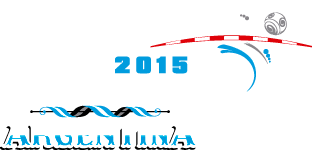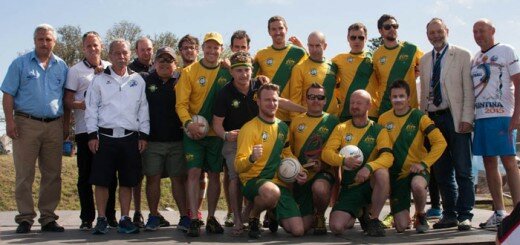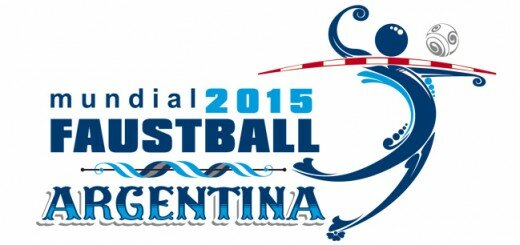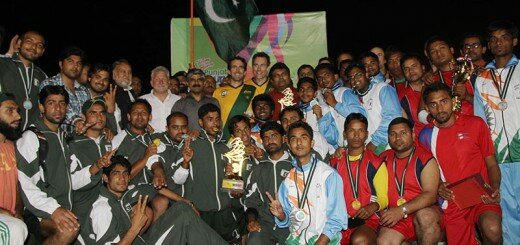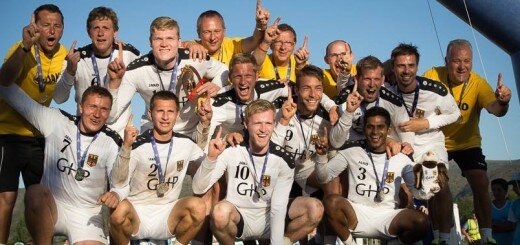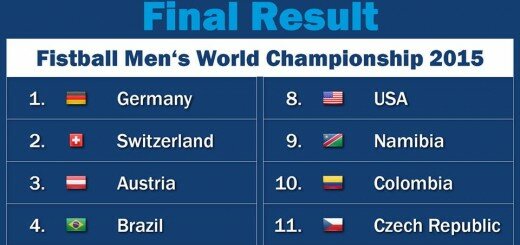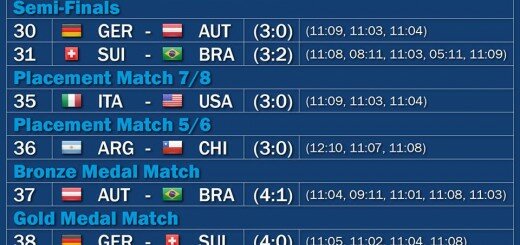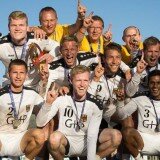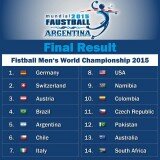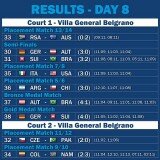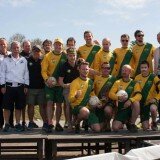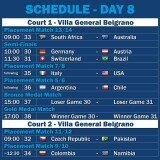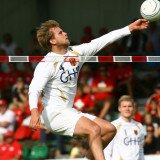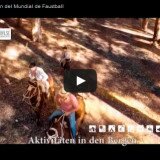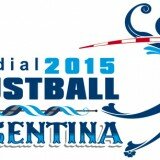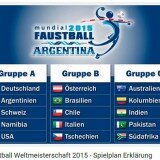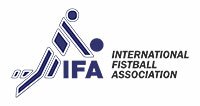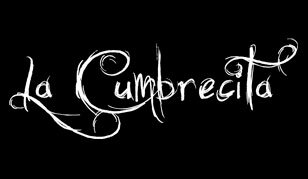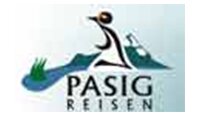Laurence Young, Coach Australia
“You will meet 15 blokes all keen to represent their country!”
 Today’s interview partner is Laurence Young, head coach of the Australian fistball team. The 29-year-old physical and outdoor education teacher is the youngest on the team and is excited about the World Cup in Argentina. Read this interview to find out about the development of the sport Down Under and why the Aussies will smash their rivals from South Africa.
Today’s interview partner is Laurence Young, head coach of the Australian fistball team. The 29-year-old physical and outdoor education teacher is the youngest on the team and is excited about the World Cup in Argentina. Read this interview to find out about the development of the sport Down Under and why the Aussies will smash their rivals from South Africa.
IFA: Hi Laurence, you are actually the youngest player on the roster, how did you end up as the Head Coach for the Australian team?
Laurence Young: I was offered the coaching role because of my sport teaching background and my experience from playing and training in Europe last year. I travelled around Europe in 2014 and played with Klemens Kronsteiner in Austria, and also for the US senior team at the biggest fistball tournament in Switzerland. When I returned from overseas I continued to play in the local Australian fistball league and, along with 14 others, I will be going to Argentina in November to represent Australia.
IFA: How did fistball start in Australia?
Laurence: Fistball in Australia basically started when two Aussie men asked the question: “What international sport could I play that is obscure enough to allow me to represent my nation?” After a brief search online, it was determined that fistball could be that sport. Within several months the first fistball game was attempted (in February 2013), and just one month later we organized 4 teams and held our first “Fistivus” tournament.
One year later, the IFA sent Klemens Kronsteiner out from Austria to teach us more about the game. It turns out we had been playing it completely wrong for the previous 12 months, and with some full day training sessions he helped us to improve a lot.
Currently, fistball in Australia is only played in Melbourne, but we now have 6 club teams and we are hoping to increase on that next season.
IFA: So who founded the Fistball Federation Down Under?
Laurence Young: The main people who founded the sport are Rolf Petersen and Chris (Malcolm) Donnellon, who serve as President and Vice President respectively. They founded the Federation in December 2012, and have essentially run the Federation since. Rolf also happens to be the brother of Leif Petersen, who has since introduced fistball in South Africa. Chris Milne has also had heaps of valuable input into fistball over the last few years, and currently serves as Treasurer of the Federation.
IFA: Not only Australia has recently established fistball, with other nations like South Africa and Pakistan now starting to compete. What is the reason for this ‘boom’?
Laurence: I’m not sure exactly why there is a current ‘boom’ in fistball. We didn’t even know the extent of the number of countries played it when we first went to the local park to start playing. Obviously we’ve kept tabs on the growth of fistball in South Africa, but I’m not sure why it has grown in popularity recently in Pakistan or India. We’re definitely excited that it is growing there however, and we look forward to seeing how we match up against these new teams at the World Championships.
IFA: From a funny idea at the beginning to serious sport action in just two years is a fast development of the sport. Do you receive any financial help from the government as well?
Laurence: The development of fistball in Australia has taken us all by surprise. It basically turned from a casual hit at the park with some mates into a fully-fledged league with regular tournaments, training, fundraising nights and now a team being sent overseas to represent Australia! In some ways it’s probably grown too fast!
Financially we don’t receive any government funding, and all of our funds come from player memberships, tournament registrations and fundraising. We also have some sponsorship help from a local brewery, which we use to raise funds on tournament days. Despite this, we raise very little in revenue, so organising our participation for Argentina has been financially challenging. Despite this, we have all put many hours into training, fundraising and organising our squad to make sure we can send a team to represent Australia.
IFA: So what are your expectations for the first Australian appearance at the World Championships?
Laurence: As coach, it’s important to be realistic about our expectations at the World Championships. This is our first tournament, playing a sport that we have only played properly for two years, and the average age of our team is 34. If, by the end of the competition, we get back on the plane having lost all of our games (except for South Africa – we will smash them!), but we have played to the best of our abilities, then I’ll be quite content. The experience of not only representing Australia, but also working hard towards improving our skills, is a great achievement and one I’m sure every Aussie in our team will be very proud of.
IFA: And what about your group, South Africa, Colombia, Pakistan and India – who will be toughest opponent?
Laurence: As we don’t have much access to footage of these newer teams, it’s hard to predict how we will go in our group stage. I believe Columbia will be very competitive and the hardest to beat. We’re also very excited to then play an experienced nation to get an understanding of how we stack up against the best teams, such as Germany, Austria or Brazil.
IFA: I heard you have received help not only from Klemens Kronsteiner, but also from others?
Laurence: Yes, we have also had some help at different times from visiting players, usually travelling from Brazil and Germany, so getting them involved has helped us with our technique and developing training drills. As a result of this, and from what I saw during my time in Europe, I have run the trainings initially focusing on technique and have now started to develop team strategies, tactics and dynamics within the team.
IFA: So the Australian fistballlers already have contacts to many international players?
Laurence: Yes that’s true, and right from the start we’ve seen that these contacts are what Australians love most about fistball – it’s like a large family with people from all over the globe that are more than happy to help out. If any fistball players travelling to Australia need any help, we do our best to help them out. We always try to give them tips, show them around, and invite them along to play in our tournaments etc.
IFA: How are your preparations going for Córdoba at the moment? How often are you training for fistball?
Laurence: The group trains twice a week – one weekday training in Melbourne or Geelong that the majority get along to if they are free from work, and then we all train on Sunday afternoon together. As all the other players are older than me, most of my teammates have kids and work commitments, and thus it’s a little hard to all train together more than that.
IFA: What sort of people are we going to get from Australia at the World Cup?
Laurence: The type of people you are going to get is an array of people from various backgrounds. From larrikin to competitive, young to old, but most importantly you will meet 15 blokes all keen to represent their country, meet fellow fistballers, smash South Africa and above all leave a lasting positive impression on the greater fistball community.
IFA: Alright, so we are looking forward to meet you and your team in Córdoba, good luck and see you in November.
